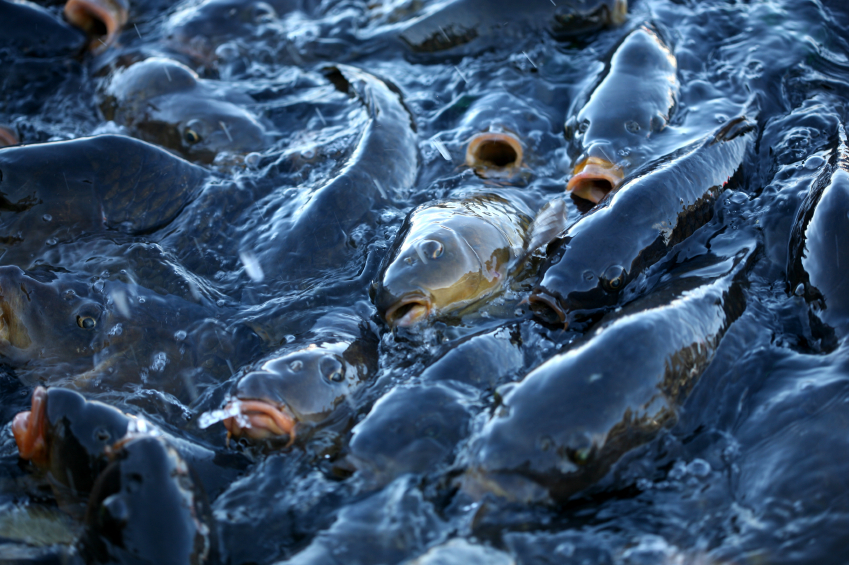- 14 February 2024
- 304
Does Eating Fish Raise Cancer Risk? What Science Says

Introduction
In recent years, concerns have been raised about the potential link between consuming fish and an increased risk of cancer. With conflicting information circulating, it’s crucial to delve into the scientific evidence to understand the relationship between fish consumption and cancer risk. Let’s explore what the latest research has to say on this topic.
Nutritional Value of Fish
Before delving into the cancer risk associated with fish consumption, it’s essential to recognize the nutritional benefits that fish offer. Fish are rich in high-quality protein, omega-3 fatty acids, vitamins, and minerals. Omega-3 fatty acids, such as EPA and DHA, have been linked to numerous health benefits, including reducing inflammation, improving heart health, and supporting brain function.

The Potential Concerns
While fish are a nutritious food choice for many, concerns have been raised regarding their potential association with cancer risk. Some studies have suggested that certain contaminants found in fish, such as mercury, polychlorinated biphenyls (PCBs), and dioxins, may contribute to an increased risk of cancer development.
Mercury and Cancer Risk
Mercury is a heavy metal that can accumulate in fish, particularly in larger species. High levels of mercury exposure have been linked to an increased risk of various health problems, including neurological disorders and cardiovascular disease. However, the evidence regarding mercury’s association with cancer risk remains inconclusive.
Some studies have suggested a potential link between mercury exposure from fish consumption and an increased risk of certain cancers, such as liver cancer and leukemia. However, other research has failed to establish a definitive connection. Further studies are needed to clarify the role of mercury in cancer development.

PCBs, Dioxins, and Cancer Risk
In addition to mercury, fish may also contain other contaminants, such as PCBs and dioxins. These chemicals are environmental pollutants that can accumulate in the fatty tissues of fish. Like mercury, PCBs and dioxins have been associated with adverse health effects, including cancer.
Studies investigating the link between PCB and dioxin exposure from fish consumption and cancer risk have yielded mixed results. While some research suggests a potential association with certain cancers, such as breast cancer and non-Hodgkin lymphoma, other studies have found no significant correlation. Explore More About (Foods For Cancer Treatment)
The Role of Fish Preparation and Cooking Methods
The way fish is prepared and cooked can also influence its potential health risks. Certain cooking methods, such as frying or grilling at high temperatures, can lead to the formation of harmful compounds, such as heterocyclic amines (HCAs) and polycyclic aromatic hydrocarbons (PAHs), which are known carcinogens.
To minimize the formation of these compounds, it’s recommended to opt for healthier cooking methods, such as baking, broiling, or steaming. Additionally, removing the skin and trimming visible fat from fish before cooking can help reduce exposure to harmful contaminants.

The Importance of Moderation and Variety
Despite the potential concerns surrounding contaminants in fish, it’s essential to emphasize that the overall health benefits of consuming fish outweigh the risks for most individuals. Fish consumption is associated with a lower risk of cardiovascular disease, stroke, and mortality from all causes.
To mitigate any potential risks, it’s advisable to consume a variety of fish species and to choose smaller, younger fish, which tend to accumulate fewer contaminants. Additionally, pregnant women, nursing mothers, and young children should be cautious about consuming certain types of fish that may contain higher levels of mercury.
| Aspect | Potential Risks | Potential Benefits |
|---|---|---|
| Nutritional Value | Some fish may contain contaminants like mercury, PCBs, and dioxins, which can pose health risks. | Rich source of high-quality protein, omega-3 fatty acids, vitamins, and minerals that support overall health. |
| Mercury Exposure | High levels of mercury in certain fish species may be associated with neurological disorders and cardiovascular disease. | Omega-3 fatty acids found in fish can support brain function and reduce inflammation, counteracting some negative effects of mercury. |
| PCBs and Dioxins | Contamination with PCBs and dioxins may contribute to cancer risk and other adverse health effects. | Consuming fish may lower the risk of cardiovascular disease, stroke, and mortality from all causes. |
| Cooking Methods | Frying or grilling fish at high temperatures can lead to the formation of carcinogenic compounds. | Healthier cooking methods, such as baking, broiling, or steaming, can minimize the formation of harmful compounds. |
| Moderation | Consuming fish in moderation and choosing smaller, younger fish can reduce exposure to contaminants. | Variety in fish consumption ensures a diverse intake of nutrients while minimizing the risk of excessive exposure to contaminants. |
Conclusion
In conclusion, the relationship between fish consumption and cancer risk is complex and multifaceted. While certain contaminants found in fish, such as mercury, PCBs, and dioxins, have been associated with an increased risk of cancer in some studies, the evidence remains inconclusive.
Overall, the health benefits of consuming fish, including its high-quality protein, omega-3 fatty acids, vitamins, and minerals, outweigh the potential risks for most individuals. By choosing fish that are lower in contaminants and adopting healthier cooking methods, individuals can continue to enjoy the nutritional benefits of fish while minimizing any potential adverse effects on health.

